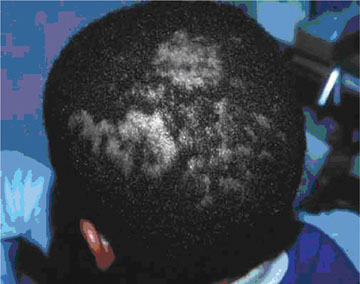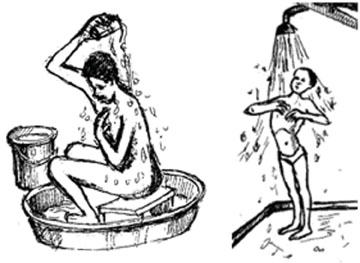3.4 Components of personal hygiene
3.4.1 Body hygiene (skin care)
The body has nearly two million sweat glands. Moistened and dried sweat and dead skin cells all together make dirt that sticks on to the skin and the surface of underclothes. The action of bacteria decomposes the sweat, thereby generating bad odour and irritating the skin. This is especially observed in the groin, underarms and feet, and in clothing that has absorbed sweat. Skin infections such as scabies, pimples and ringworm are results of poor body hygiene. Figure 3.1 shows ringworm of the scalp (Tinea capitis).

The first task in body hygiene is to find water, soap and other cleansing materials. Taking a bath or a shower using body soap at least weekly is very important to ensuring our body stays clean (Figure 3.2). Bathing can be every day or after periods of sweating or getting dirty. The genitals and the anal region need to be cleaned well because of the natural secretions of these areas. Dry the body with a clean towel after thorough rinsing. Change into clean underwear after a bath. Changing sweat-soaked clothes after each bath is advised. Cleaning the ears after every bath is also necessary. Avoid sharing soaps and towels because of the danger of cross-infection.

3.3 Public health importance of personal hygiene
